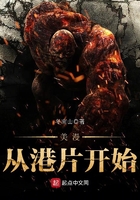As the colonel glanced within, a deep but embarrassed voice fell upon his ear.He turned quickly.It was Lord Reginald, flushed and sympathetic.
"He was a friend,--a relation of ours, you know," he stammered.
"My sister would like--to look at him again.""Not now," said the colonel in a low voice.The surgeon added something in a voice still lower, which scarcely reached the veranda.
Lord Reginald turned away with a white face.
"Fall back there!" Captain Fleetwood rode up.
"All ready, sir."
"One moment, captain," said the colonel quietly."File your first half company before that ambulance, and bid the men look in."The singular order was obeyed.The men filed slowly forward, each in turn halting before the motionless wagon and its immobile freight.They were men inured to frontier bloodshed and savage warfare; some halted and hurried on; others lingered, others turned to look again.One man burst into a short laugh, but when the others turned indignantly upon him, they saw that in his face that held them in awe.What they saw in the ambulance did not transpire;what they felt was not known.Strangely enough, however, what they repressed themselves was mysteriously communicated to their horses, who snorted and quivered with eagerness and impatience as they rode back again.The horse of the trooper who had laughed almost leaped into the air.Only Sergeant Cassidy was communicative; he took a larger circuit in returning to his place, and managed to lean over and whisper hoarsely in the ear of a camp follower spectator, "Tell the young leddy that the torturin' divvils couldn't take the smile off him!"The little column filed out of the gateway into the road.As Captain Fleetwood passed Colonel Carter the two men's eyes met.
The colonel said quietly, "Good night, captain.Let us have a good report from you."The captain replied only with his gauntleted hand against the brim of his slouched hat, but the next moment his voice was heard strong and clear enough in the road.The little column trotted away as evenly as on parade.But those who climbed the roof of the barracks a quarter of an hour later saw, in the moonlight, a white cloud drifting rapidly across the plain towards the west.It was a small cloud in that bare, menacing, cruel, and illimitable waste;but in its breast was crammed a thunderbolt.
It fell thirty miles away, blasting and scattering a thousand warriors and their camp, giving and taking no quarter, vengeful, exterminating, and complete.Later there were different opinions about it and the horrible crime that had provoked it: the opposers of Peter's policy jubilant over the irony of the assassination of the Apostle of Peace, Peter's disciples as actively deploring the merciless and indiscriminating vengeance of the military; and so the problem that Peter had vainly attempted to solve was left an open question.There were those, too, who believed that Peter had never sacrificed himself and his sister for the sake of another, but had provoked and incensed the savages by the blind arrogance of a reformer.There were wild stories by scouts and interpreters how he had challenged his fate by an Indian bravado; how himself and his sister had met torture with an Indian stoicism, and how the Indian braves themselves at last in a turmoil of revulsion had dipped their arrows and lances in the heroic heart's blood of their victims, and worshiped their still palpitating flesh.
But there was one honest loyal little heart that carried back--three thousand miles--to England the man as it had known and loved him.Lady Elfrida Runnybroke never married; neither did she go into retirement, but lived her life and fulfilled her duties in her usual clear-eyed fashion.She was particularly kind to all Americans,--barring, I fear, a few pretty-faced, finely-frocked title-hunters,--told stories of the Far West, and had theories of a people of which they knew little, cared less, and believed to be vulgar.But I think she found a new pleasure in the old church at Ashley Grange, and loved to linger over the effigy of the old Crusader,--her kinsman, the swashbuckler De Bracy,--with a vague but pretty belief that devotion and love do not die with brave men, but live and flourish even in lands beyond the seas.















